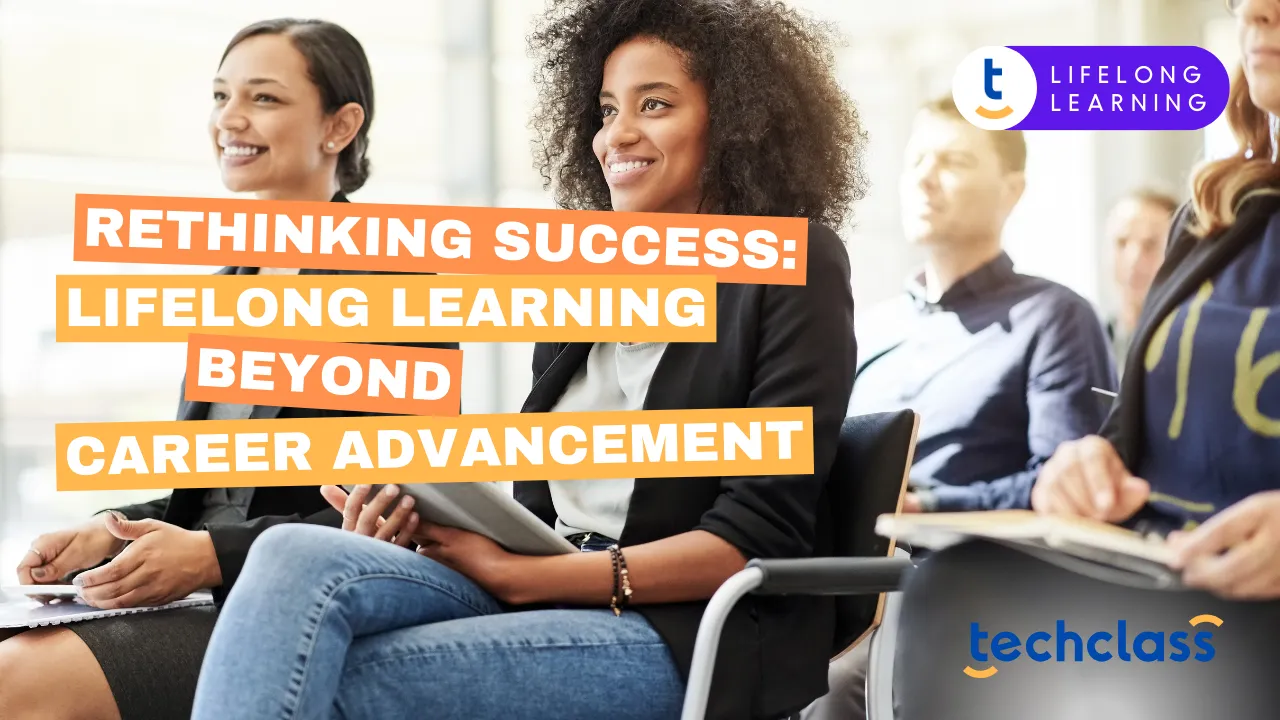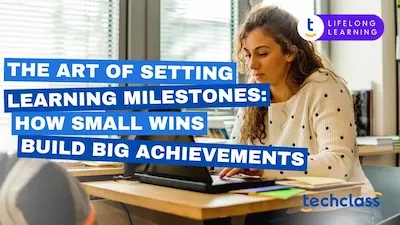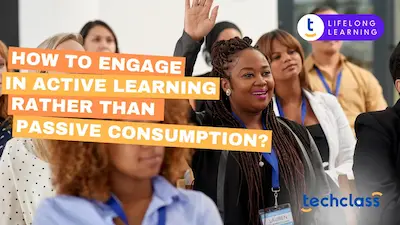
In the midst of constant change, technological disruption, evolving job markets, and global uncertainty, the traditional definitions of success are undergoing a transformation. Where once success was synonymous with promotions, titles, and financial gains, today it is increasingly intertwined with personal fulfillment, adaptability, and a commitment to lifelong learning.
While lifelong learning is often framed as a way to stay competitive in the workplace, its significance stretches far beyond career advancement. It fosters personal growth, enhances emotional intelligence, nurtures creativity, and empowers individuals to live more purposefully. In short, lifelong learning isn’t just a professional strategy, it’s a reimagining of what it means to succeed.
At its core, lifelong learning is a self-motivated, continuous pursuit of knowledge, driven by curiosity and the desire for improvement. It spans everything from formal education, degrees, certifications, professional development courses, to informal learning such as reading, podcasts, online tutorials, or attending workshops.
This form of learning acknowledges that growth doesn’t end with a diploma. It’s an ongoing journey that adapts to each stage of life, helping people not only navigate change but also embrace it with confidence.
In past generations, success was often defined by long-term stability in a single job or industry. Today, that model has dissolved. Modern careers are fluid, requiring individuals to pivot, reskill, and evolve across multiple roles and sectors.
Lifelong learning equips people with the agility to move between these roles. But more importantly, it allows them to question their goals, reassess their values, and reframe what success looks like. For some, learning a new coding language or mastering data analytics may open doors in tech. For others, it might be the act of learning itself, developing discipline, resilience, and self-awareness, that drives a more meaningful transformation.
While career advancement is a clear benefit of lifelong learning, its true power lies in how it enriches the whole person.
Learning something new, be it a language, philosophy, or musical instrument, can enhance mental well-being, boost self-confidence, and create a deeper sense of purpose. It helps people reconnect with their passions, cultivate curiosity, and experience joy in exploration.
Those who pursue lifelong learning often describe feeling more empowered, more aware of their strengths and limitations, and more aligned with their personal values. This sense of alignment is a powerful indicator of success, far beyond the confines of the workplace.
Continuing education doesn’t just add skills, it reshapes professional identity. It prompts individuals to reflect on who they are, what they value, and how they want to contribute to the world.
For example, someone pursuing a Ph.D. while working full-time may find that the journey isn't just about mastering a subject, but about discovering new dimensions of discipline, purpose, and resilience. The experience may lead to new career directions, leadership aspirations, or even a desire to influence policy or community well-being.
In this light, success becomes less about climbing the corporate ladder and more about evolving into a wiser, more intentional contributor to society.
One of the most powerful outcomes of lifelong learning is the ability to align professional development with personal fulfillment. Whether it's switching careers, starting a business, volunteering in new ways, or simply becoming more thoughtful in day-to-day decision-making, learning enables individuals to pursue lives of impact, not just income.
As industries evolve, so do the metrics of success. Instead of valuing people solely for their productivity or technical expertise, modern workplaces are increasingly recognizing qualities like adaptability, empathy, ethical thinking, and creative problem-solving. These traits are cultivated through lifelong learning, not cramming for certifications, but through reflective and meaningful engagement with new ideas.
The good news? Lifelong learning has never been more accessible. Online platforms, free courses, and flexible degree programs make it possible to learn anytime, anywhere. Whether you’re a working parent, a mid-career professional, or a retiree rediscovering old passions, there are options tailored to your pace and lifestyle.
This democratization of learning levels the playing field, allowing people from all walks of life to redefine what success means to them, and to pursue it with dignity and confidence.
Today, success is not about having all the answers, it’s about remaining open to new questions. It’s about choosing growth over stagnation, curiosity over complacency, and meaning over metrics. Lifelong learning empowers us to do just that.
So, whether you're taking your first online course, enrolling in a postgraduate program, or simply picking up a book that challenges your worldview, remember: You’re not just enhancing your resume. You’re redefining success, on your own terms.
In a society where change is the only constant, lifelong learning offers more than professional security. It provides a lifelong source of personal enrichment, empowerment, and purpose. It helps us not only survive but thrive, redefining success not as a destination, but as a journey of continuous discovery.
Redefining success as a lifelong journey is a powerful shift in perspective, but fostering this mindset across an entire organization requires more than just encouragement. Traditional training methods often prioritize rigid completion metrics over genuine engagement, which can stifle the very curiosity needed for true personal and professional growth.
TechClass provides the modern infrastructure necessary to turn the philosophy of lifelong learning into a daily reality. By leveraging an intuitive platform that offers diverse Learning Paths and a rich Training Library, organizations can empower their teams to explore new skills at their own pace. Features like gamification and social learning transform development from a mandatory requirement into a rewarding experience. With TechClass, you can bridge the gap between business objectives and personal fulfillment, creating an environment where success is defined by continuous evolution and collective discovery.


